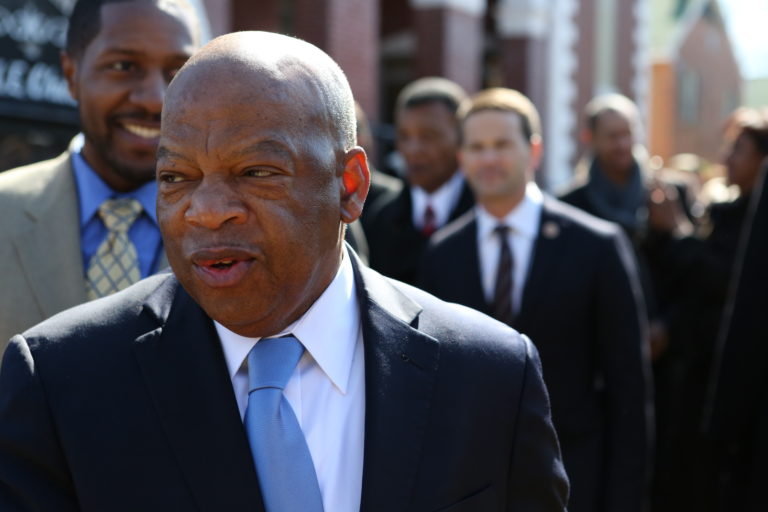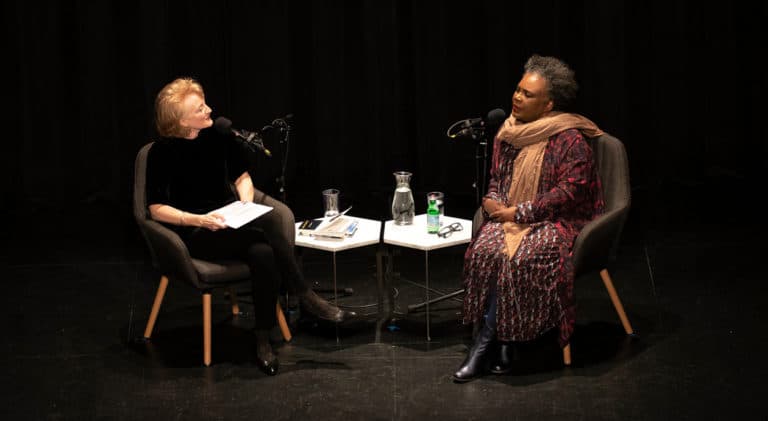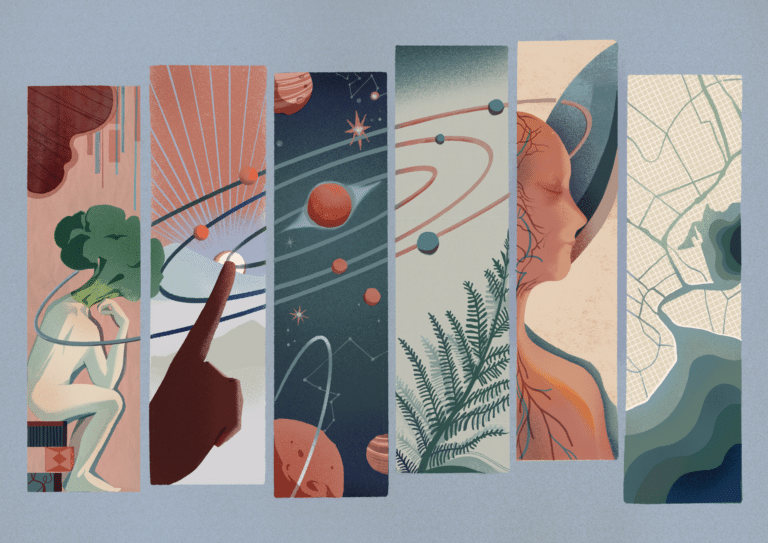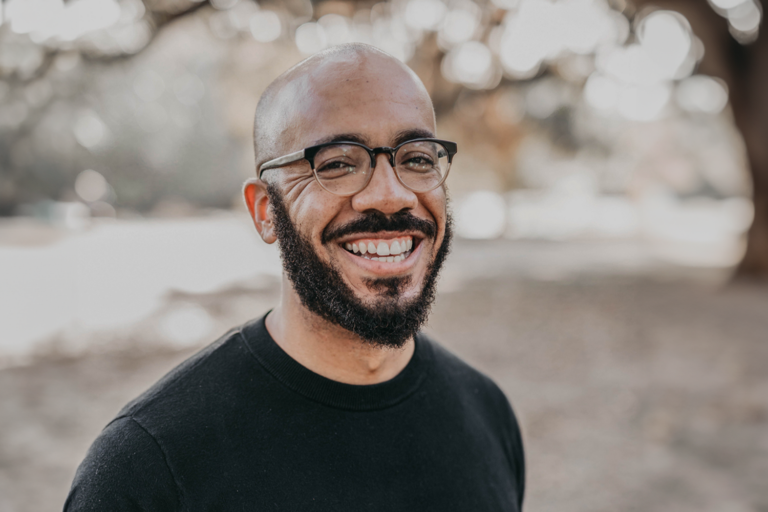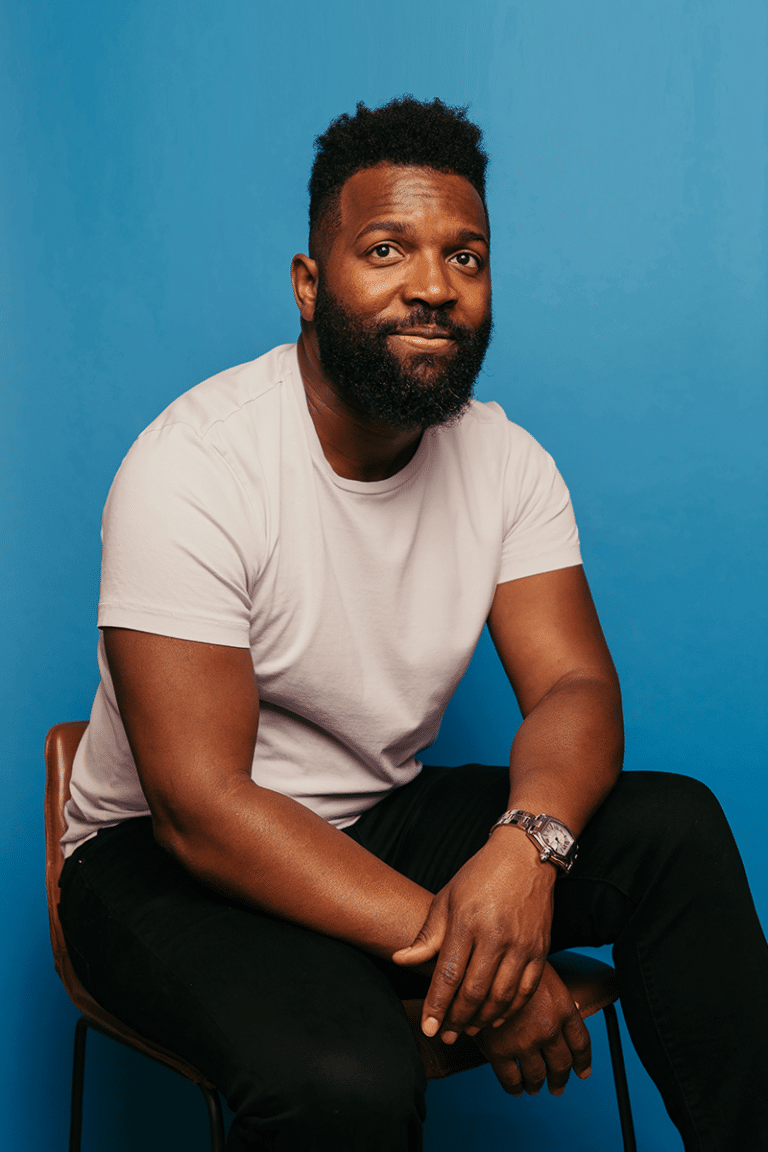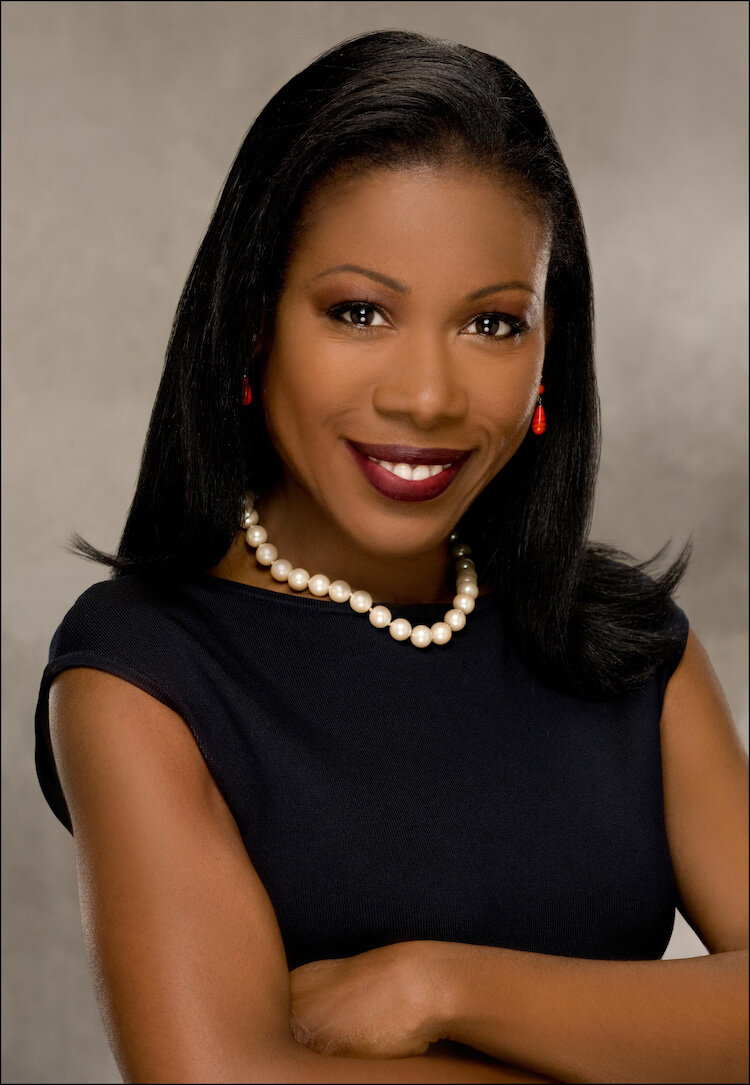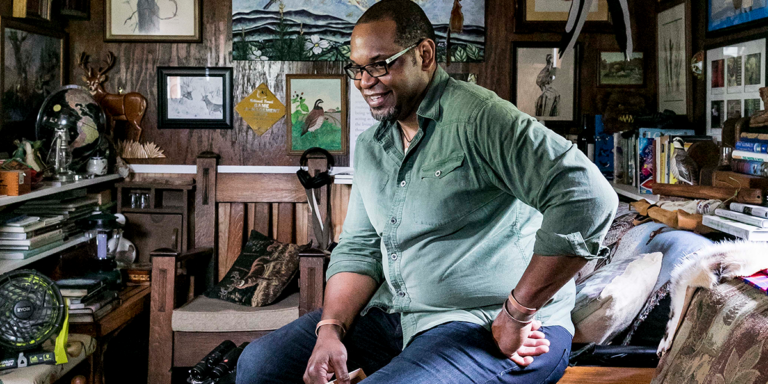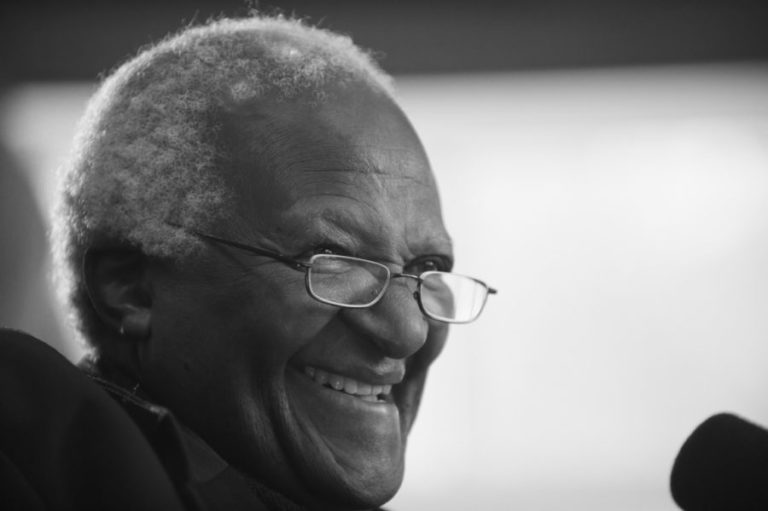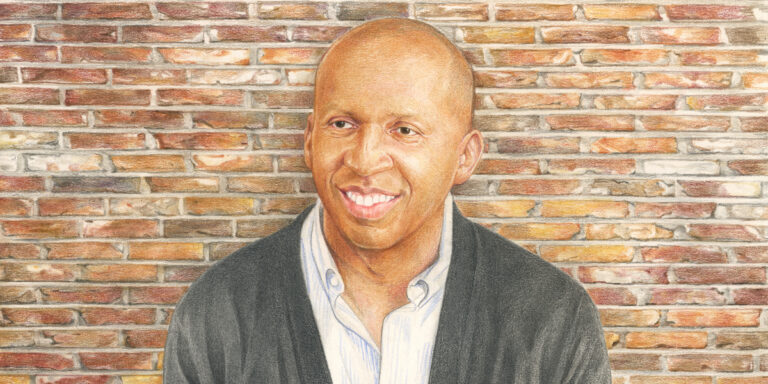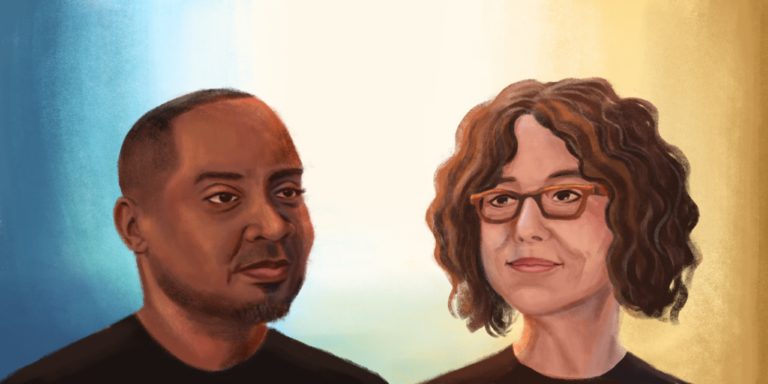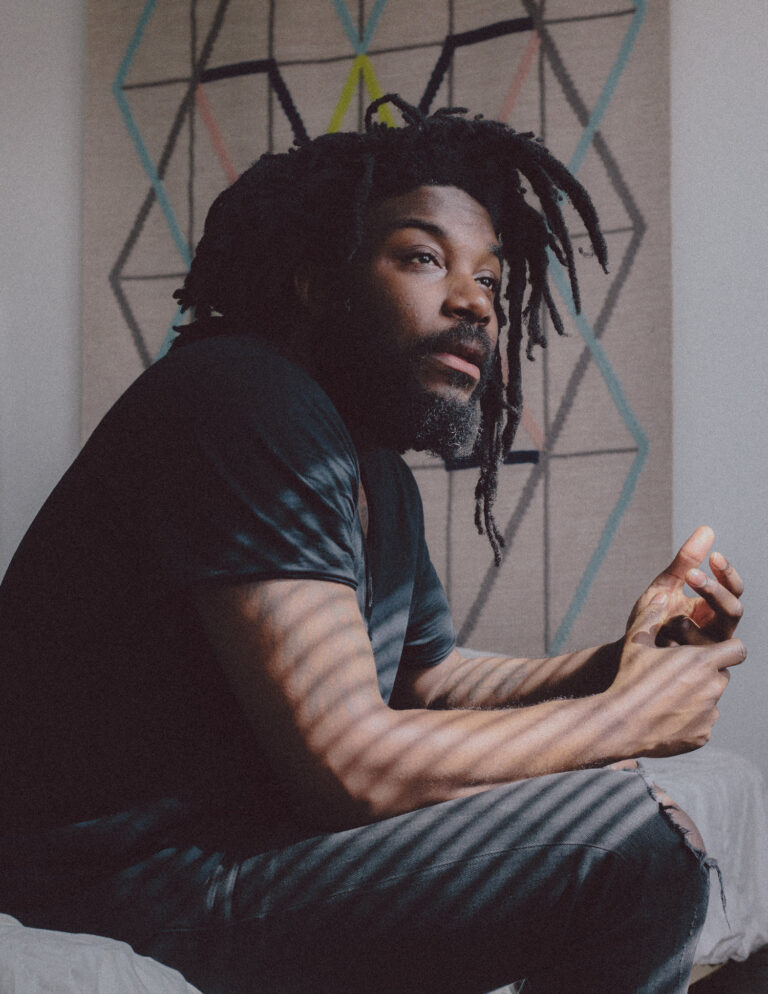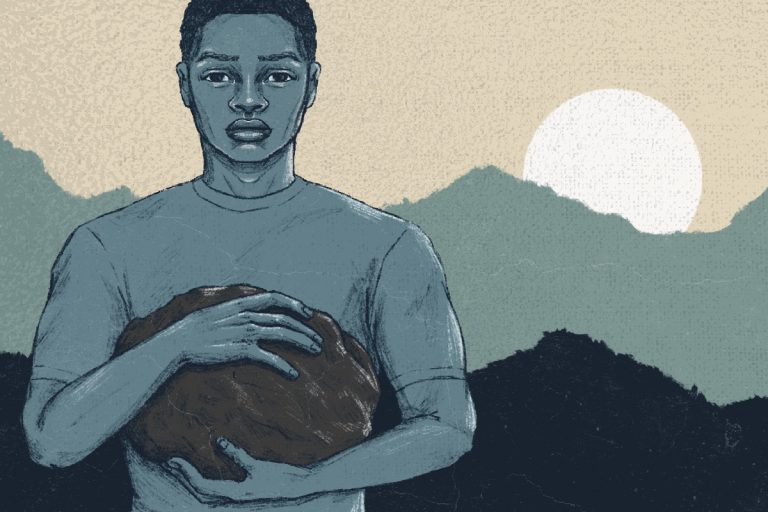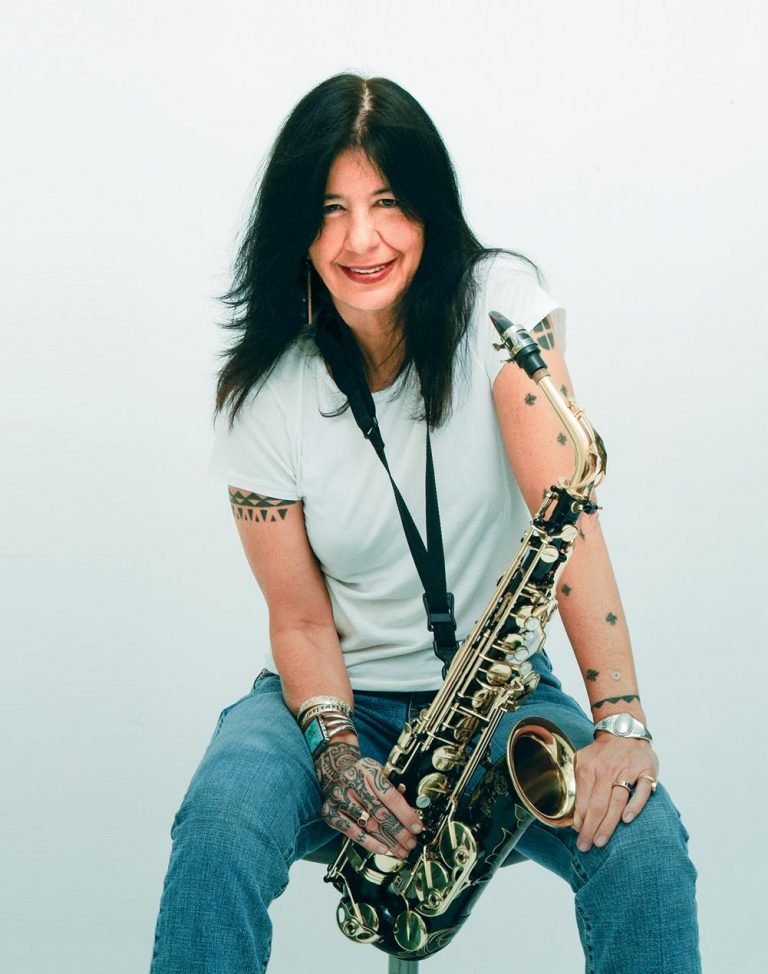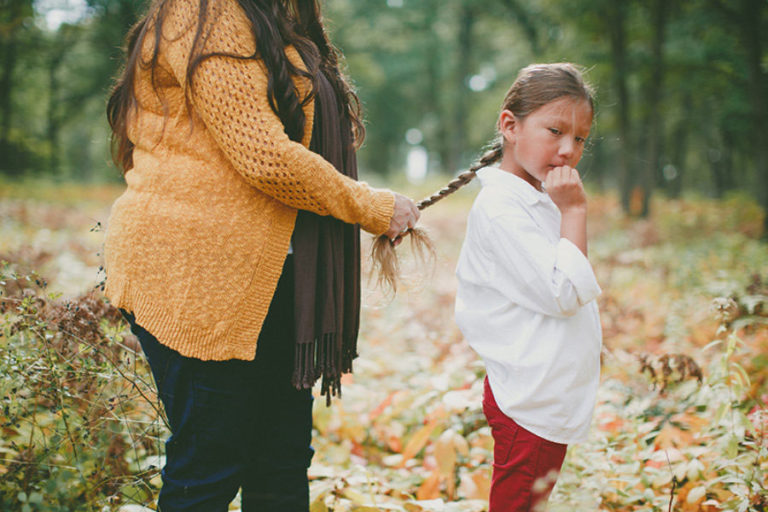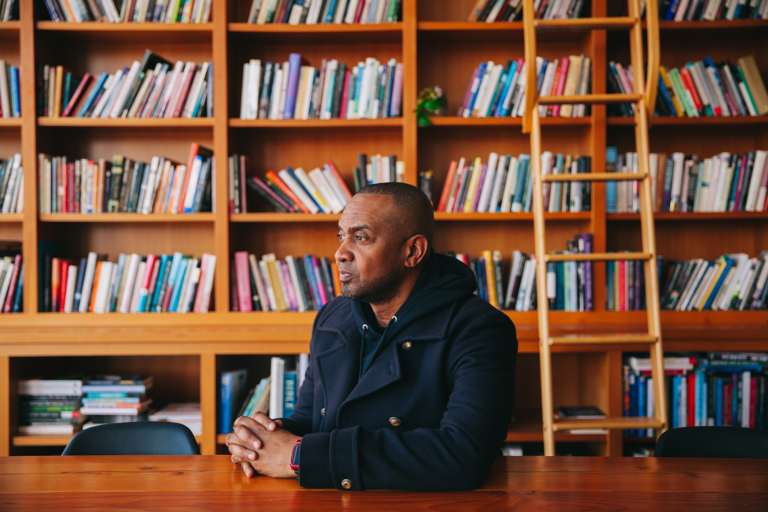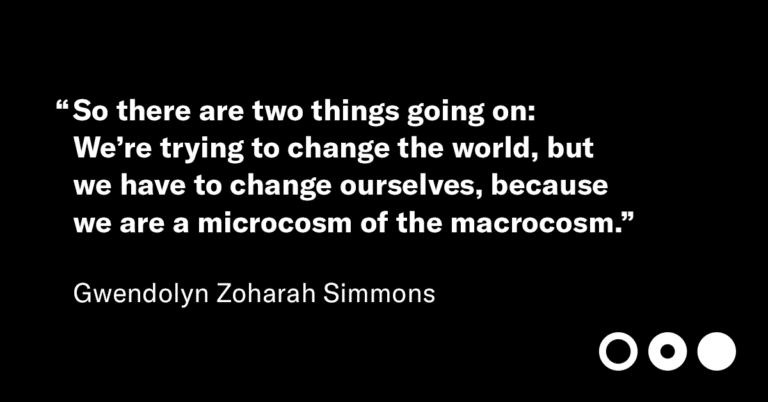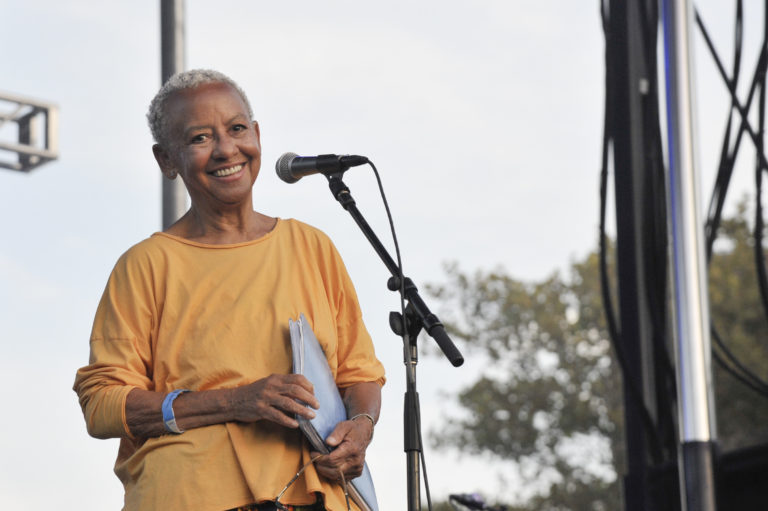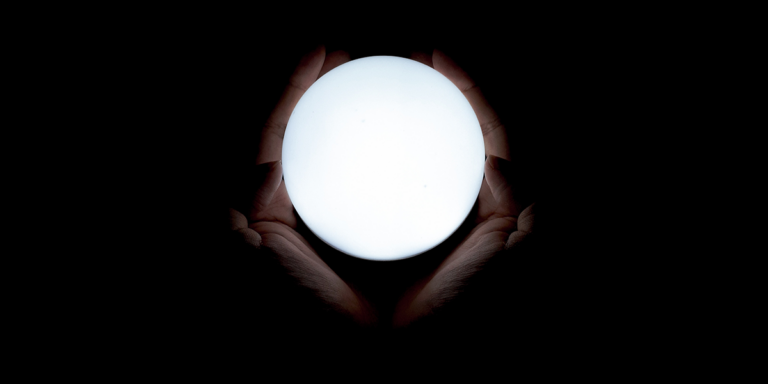An extraordinary conversation with the late congressman John Lewis, taped in Montgomery, Alabama, during a pilgrimage 50 years after the March on Washington. It offers a special look inside his wisdom, the civil rights leaders’ spiritual confrontation within themselves, and the intricate art of nonviolence as “love in action.”
Race & Healing
Featured Items
The poet, essayist, and playwright Claudia Rankine says every conversation about race doesn’t need to be about racism. But she says all of us — and especially white people — need to find a way to talk about it, even when it gets uncomfortable. Her bestselling book, Citizen: An American Lyric, catalogued the painful daily experiences of lived racism for people of color. Claudia models how it’s possible to bring that reality into the open — not to fight, but to draw closer. And she shows how we can do this with everyone, from our intimate friends to strangers on airplanes.
View
- List View
- Standard View
- Grid View
45 Results
Filters
The wonderful civil rights elder Vincent Harding liked to look around the world for what he called “live human signposts” — human beings who embody ways of seeing and becoming and who point the way forward to the world we want to inhabit. And adrienne maree brown, who has inspired worlds of social creativity with her notions of “pleasure activism” and “emergent strategy,” is surely one of these.
We’re listening with new ears as she brings together so many of the threads that have recurred in this season of On Being: on looking the harsh complexity of this world full in the face while dancing with joy as life force and fuel and on keeping clear eyes on the reasons for ecological despair while giving oneself over to a loving apprenticeship with the natural world as teacher and guide. A love of visionary science fiction also finds a robust place in her work and this conversation. She altogether shines a light on an emerging ecosystem in our world over and against the drumbeat of what is fractured and breaking — the cultivation of old and new ways of seeing, towards a transformative wholeness of living.
This phrase recurs throughout Clint Smith’s writing: “in the marrow of our bones.” It is an example of how words can hold encrypted wisdom — in this case, the reality that memory and emotion lodge in us physically. Words and phrases have carried this truth forward in time long before we had the science to understand it.
Clint Smith is best known for his 2021 book, How the Word Is Passed, but he is first and foremost a poet. He and Krista discuss how his various life chapters have been real-world laboratories for him to investigate the entanglement between language and the intelligence of the body — and the related entanglement between history and place. His poetic sensibility has singularly opened readers to approach a generative reckoning with American history — on whatever side of that history our ancestors stood.
Clint Smith has a way of making reckoning possible at a humanizing, softening, bodily level — in the marrow, you might say, of our bones.
Baratunde Thurston is a comedian, writer, and media entrepreneur. He has eyes open to the contradictions, strangeness, and beauty of being human. He looks for learning happening even amidst our hardest cultural tangles. And he intertwines all of this, innovatively and searchingly, with his lifelong joy in the natural world.
The kaleidoscopic view of life and love and the world that is Baratunde’s builds and builds in this conversation Krista had with him around the edges of the 2023 Aspen Ideas Festival — towards an exuberant glimpse of how we can all be more fully human and socially creative.
“Becoming other people” for a living, as Kerry Washington likes to describe her craft, turns out to be a revelatory lens on the high drama that is the human condition. As a “learning actor,” a kind of actor/anthropologist, she has brought elegance and moral rigor to all kinds of roles: as the uber-glamorous, tough-as-nails Olivia Pope on Scandal; as the wife of Idi Amin and the wife of Ray Charles; from Little Fires Everywhere to Django Unchained. Just after Scandal ended seven triumphant seasons, she starred on Broadway as Kendra, a jeans-clad mother in a Miami police station waiting to hear what has happened to her beloved son. Krista was in that audience, and saw how Kerry attended not just to her role on stage but to bringing a beautifully racially mixed audience to participating and reflecting together.
So this conversation has been a while in coming. It is rich with grace and surprising angles of insight — on the roles we all learn to play in the stories of the lives that we are given, and the evolution that is possible in how we assume those characters and leave them behind and grow them up.
This episode of On Being was produced with consideration of the ongoing SAG-AFTRA strike and with external legal guidance. In distributing this episode, we attest to our belief that no statements made involve promotion of struck work in violation of the SAG-AFTRA Strike Order.
To say that Ruth Wilson Gilmore is a geographer, which she is, is not to convey the vast and varied ways in which she is influencing the makings of the future. She’s a mentor and teacher to a new generation of social activism and creativity. She’s a visionary of “abolition,” and that has become a fraught and polarizing word in our fraught and polarized public discourse. But when Ruth Wilson Gilmore speaks of “abolition,” she is working with a long, long view towards making a whole world, starting now, in which prisons and policing as we do them now become unnecessary, unthinkable. In this sense, abolition is not primarily a matter of what to get rid of, but what to build and to orient around — being present, for example, to human vulnerability and to the ingredients that make for deep human flourishing.
Meeting Ruth Wilson Gilmore and drawing her out in this way is an exercise in muscular hope — and in understanding the passion of a new generation that is shaping what we will collectively become.
March 9, 2023
Isabel Wilkerson
“We all know in our bones that things are harder than they have to be.”
In this rich, expansive, and warm conversation between friends, Krista draws out the heart for humanity behind Isabel Wilkerson’s eye on histories we are only now communally learning to tell — her devotion to understanding not merely who we have been, but who we can be. Her most recent offering of fresh insight to our life together brings “caste” into the light — a recurrent, instinctive pattern of human societies across the centuries, though far more malignant in some times and places. Caste is a ranking of human value that works more like a pathogen than a belief system — more like the reflexive grammar of our sentences than our choices of words. In the American context, Isabel Wilkerson says race is the skin, but “caste is the bones.” And this shift away from centering race as a focus of analysis actually helps us understand why race and racism continue to shape-shift and regenerate, every best intention and effort and law notwithstanding. But beginning to see caste also gives us fresh eyes and hearts for imagining where to begin, and how to persist, in order finally to shift that.
Isabel and Krista spoke in Seattle before a packed house at Benaroya Hall, at the invitation of Seattle Arts & Lectures.
[Content Advisory: Beginning at 21:16, there is a discussion of Nazi terminology and a quotation from Hitler with an epithet that is offensive and painful. We chose to include this language to illustrate the heinous nature of the history being discussed and Hitler’s admiration for it.]
The ornithologist J. Drew Lanham is lyrical in the languages of science, humans, and birds. His celebrated books include The Home Place: Memoirs of a Colored Man’s Love Affair with Nature and a collection of poetry and meditations called Sparrow Envy: Field Guide to Birds and Lesser Beasts. J. Drew Lanham’s way of seeing and hearing and noticing the present and the history that birds traverse — through our backyards and beyond — is a revelatory way to be present to the world and to life in our time.
This conversation took place in partnership with The Great Northern.
The remarkable Archbishop Emeritus of Cape Town and Nobel Laureate died in the closing days of 2021. He helped galvanize South Africa’s improbably peaceful transition from apartheid to democracy. He was a leader in the religious drama that transfigured South African Christianity. And he continued to engage conflict well into his retirement, in his own country and in the global Anglican communion. Krista explored all of these things with him in this warm, soaring 2010 conversation — and how Desmond Tutu’s understanding of God and humanity unfolded through the history he helped to shape.
November 4, 2021
Bryan Stevenson
Finding the Courage for What's Redemptive
How to embrace what’s right and corrective, redemptive and restorative — and an insistence that each of us is more than the worst thing we’ve done — these are gifts Bryan Stevenson offers with his life. He’s brought the language of mercy and redemption into American culture in recent years, growing out of his work as a lawyer with the Equal Justice Initiative based in Montgomery, Alabama. Now the groundbreaking museum they created in Montgomery has dramatically expanded — a new way of engaging the full and ongoing legacy of slavery in U.S. history. Krista draws out his spirit — and his moral imagination.
August 19, 2021
Robin DiAngelo and Resmaa Menakem
Towards a Framework for Repair
Through the ruptures of the past year and more, we’ve been given so much to learn, and callings to live differently. But how to do that, and where to begin? Resmaa Menakem’s book, My Grandmother’s Hands, and his original insights into racialized trauma in all kinds of bodies, have offered new ways forward for us all. So we said yes when Resmaa proposed that he join On Being together with Robin DiAngelo. She has been a foremost white voice in our civilizational grappling with whiteness. This conversation is not comfortable, but it is electric and it opens possibility.
Jason Reynolds is the National Ambassador for Young People’s Literature of the Library of Congress — and a magnificent source of wisdom for human society as a whole. He’s driven by compassion and the clear-eyed honesty that the young both possess and demand of the rest of us. Ibram X. Kendi chose him to write the YA companion to Stamped from the Beginning. In his person, Jason Reynolds both embodies and inspires innate human powers of fortitude and imagination. Hear him on “breathlaughter”; the libraries in all of our heads; and a stunning working definition of anti-racism: “simply the muscle that says humans are human… I love you, because you remind me more of myself than not.”
May 27, 2021
Tracy K. Smith and Michael Kleber-Diggs
‘History is upon us... its hand against our back.’
The pandemic memoirs began almost immediately, and now comes another kind of offering — a searching look at the meaning of the racial catharsis to which the pandemic in some sense gave birth and voice and life. Tracy K. Smith co-edited the stunning book, There’s a Revolution Outside, My Love: Letters from a Crisis, a collection of 40 pieces that span an array of BIPOC voices from Edwidge Danticat to Reginald Dwayne Betts, from Layli Long Soldier to Ross Gay to Julia Alvarez. Tracy and Michael Kleber-Diggs, who also contributed an essay, join Krista for a conversation that is quiet and fierce and wise. They reflect inward and outward, backwards and forwards, from inside the Black experience of this pivotal time to be alive.
“Though we have instructions and a map buried in our hearts when we enter this world,” the extraordinary Joy Harjo has written, “nothing quite prepares us for the abrupt shift to the breathing realm.” She is a saxophone player and performer, a visual artist, a member of the Muscogee Creek Nation, and the 23rd Poet Laureate of the United States. She opens up with Krista about her life, dreaming as a way of relating to time and place, and the story matrix that connects us all.
Layli Long Soldier is a writer, a mother, a citizen of the United States, and a citizen of the Oglala Lakota Nation. She has a way of opening up this part of her life, and of American life, to inspire self-searching and tenderness. Her award-winning first book of poetry, WHEREAS, is a response to the U.S. government’s official apology to Native peoples in 2009, which was done so quietly, with no ceremony, that it was practically a secret. Layli Long Soldier offers entry points for us all — to events that are not merely about the past, and to the freedom real apologies might bring.
Across the past year, and now as the murder trial of Derek Chauvin unfolds with Minneapolis in fresh pain and turmoil, we return again to the grounding insights of Resmaa Menakem. He is a Minneapolis-based therapist and trauma specialist who activates the wisdom of elders, and very new science, about how all of us carry in our bodies the history and traumas behind everything we collapse into the word “race.” We offer up his intelligence on changing ourselves at a cellular level — practices towards the transformed reality most of us long to inhabit.
January 18, 2021
Living the Questions
A Civil Rights Elder on Exhaustion and Rest, Spiritual Practice, and the Necessity of Loving Community
Our colleague Lucas Johnson catches up with one of his mentors, Gwendolyn Zoharah Simmons. Now a member of the National Council of Elders, she was a teenager when she joined the Mississippi Freedom Summer. She shares what she has learned about exhaustion and self-care, spiritual practice and community, while engaging in civil rights organizing and deep social healing. Dr. Simmons was raised Christian and later converted to the Sufi tradition of Islam.
January 14, 2021
Nikki Giovanni
‘We Go Forward With a Sanity and a Love’
It feels good and right this week to sit with the beloved writer Nikki Giovanni’s signature mix of high seriousness, sweeping perspective, and insistent pleasure. In the 1960s, she was a poet of the Black Arts Movement that nourished civil rights. She’s also a professor at Virginia Tech, where she brought beauty and courage after the 2007 shooting there. And she’s an adored voice to a new generation — an enthusiastic elder to us all — at home in her body and in the world of her lifetime even while she sees and delights in the beyond of it.
The U.S. election will be over soon but this year has surfaced deep human challenges that remain our callings — and possibilities for growth — for the foreseeable future. So this week and next, we’re taking the long view — first with journalist John Biewen, on the stories of our families and hometowns, what it means to be human, and what it means to be white. This conversation between Krista and John starts simply — tracing the racial story of our time through the story of a single life. It’s an exercise each of us can do. And it is a step toward a more whole and humane world, starting with ourselves.
The Pause
Join our constellation of listening and living.
The Pause is a monthly Saturday morning companion to all things On Being, with heads-up on new episodes, special offerings, event invitations, recommendations, and reflections from Krista all year round.
Search results for “”
View
- List View
- Standard View
- Grid View
Filters
